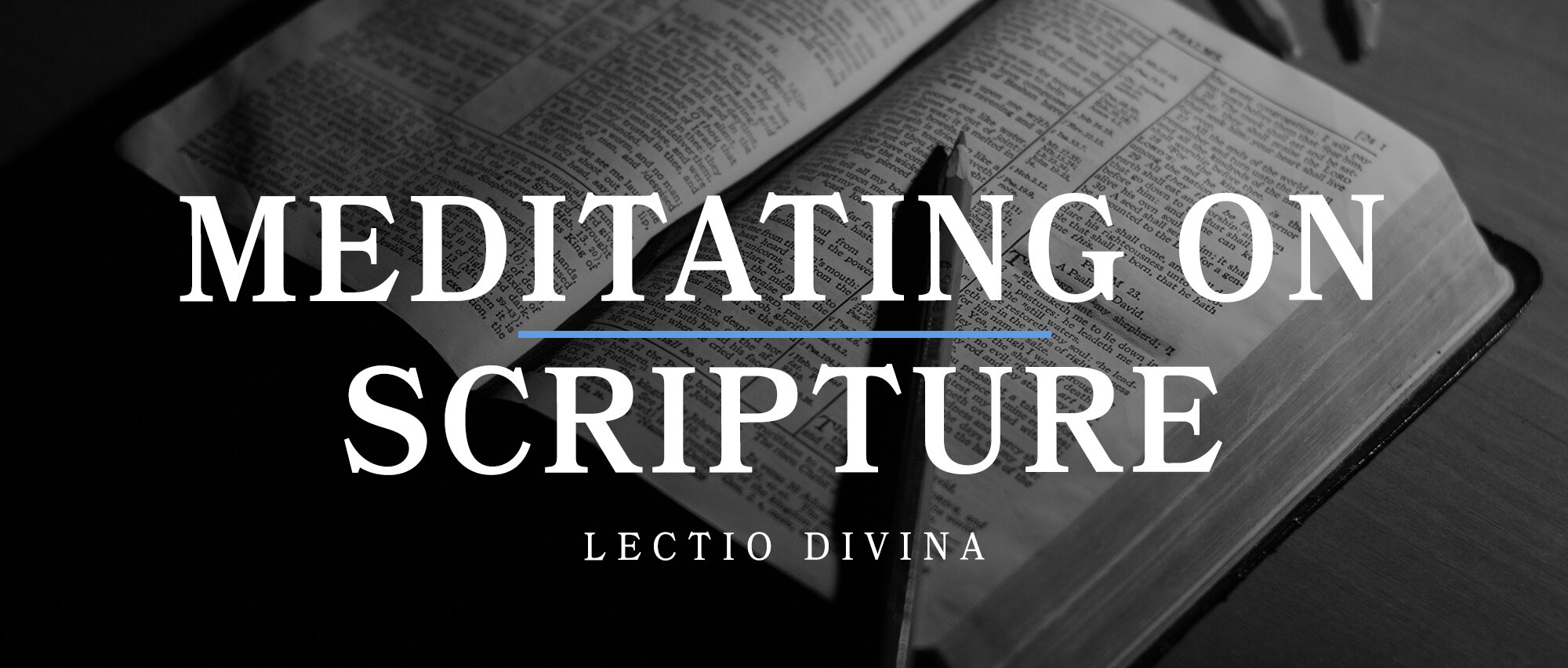The Bible is a library written by God through men that tells a unified story that leads to Jesus. And as God’s people, we want to be guided by His Word and empowered by His Spirit to more fully experience the life and love of Jesus.
For most of church history, many followers of Jesus didn’t have personal access to the Bible. The weekly reading of God’s Word, with an emphasis on listening and reflection, became the primary means by which people meditated on Scripture. This led to the practice of what is known as lectio divina - or divine reading in Latin.
This practice is primarily contemplative, which pending your church background may be different than what you’re used to. Lectio divina is not primarily about unpacking a text to pull out information, though there is a place for that. Rather, this practice is less about technique and more about cultivating stillness and silence as you make space to hear God’s Spirit through His Word.
Think about the practice like a friendship. When you get to know someone, you’re finding out new information and insights. But the point of that information is to lead you to a relationship. The more you spend time with someone, the less it is about discovering insights about them and more about just being with them. That being said, in lectio divina you’re still reading, reflecting, and responding but the emphasis is more contemplative.
To get started, walk through the following steps (or movements) in order. If you’re looking for a book of the Bible to try this out, the Psalms or a teaching of Jesus in the Gospels are great places to start.
Before you begin, turn off your phone, get away from distraction, slow down, take a deep breath or say some breath prayers as we unbusy our minds to make room to hear the voice of God.
1. Lectio
Read a Scripture passage slowly. Imagine the original author is speaking the passage to you. If it’s a narrative, imagine you’re in the story watching this story first-hand. Consider paraphrasing the passage in your own words.
What words catch your attention?
What phrases stand out to you?
2. Meditatio
Read the Scripture slowly a second time. Reflect on how the passage/words/phrases might apply to your life.
What does the passage reveal about people?
What does this passage reveal to us about God?
Ask the Spirit for wisdom and discernment. Some questions to help could include the following:
Is it relevant to something that you are going through?
Does it bring to mind a struggle that you have been dealing with?
Do certain people come to mind that God may want you to reach out to or reconcile a relationship with?
Is there a strong sense of a movement or change that needs to happen?
3. Oratio
Read the Scripture a third time, being sensitive to how God’s Spirit might want you to respond. Make this interactive and conversational with God as you ask Him:
Where do you need to obey what the passage is telling?
Where are you resistant or want to push back?
What do you need to pray for?
Ultimately, the aim of our response is obedience. Obedience is, in a way, how we love God with all our strength. So if the passage prompts you about a poor relationship - that’s God’s Spirit speaking to you. Go seek reconciliation. If the passage reminds you to be thankful about something specific in your life, respond in thankfulness. If you’re anxious or overwhelmed about something in your life, then present it to the Lord. If the passage prompts a specific sin in your life, confess that sin to God knowing He is faithful and just to forgive you.
4. Contemplatio
Then lastly, we read one last time as we rest and wait in His presence. Allow some time for His Word to sink into your soul. Before you’re done with this practice, you might want to consider writing down what the Lord showed you as a reminder throughout the day.
It is important to remember the aim of lectio is to learn to just “be” with God.
For the first 1,500 years of church history, lectio divina (Latin for “divine reading”) was the primary spiritual practice people used to be with Jesus. Since most people were illiterate, the reading of Scripture in the church Gathering each week was vital for spiritual growth with a focus on being attentive and listening to God’s Word.
With that in mind, lectio divina is not an exercise in primarily in mentally critiquing or exegeting a text for the sake of pulling out information, rather, this practice exists to further your relationship with Jesus as He invites you into His presence through His Word.
To practice this, walk through the following steps (or movements) in order. You’ll notice this is similar to our how to study the Bible post, with an emphasis on practicing the presence of God.
* This resource was adapted from Spiritual Disciplines Handbook: Practices That Transform Us by Adele Ahlberg Calhoun and “Lection Divina” at Bible Gateway. https://www.biblegateway.com/resources/scripture-engagement/lectio-divina/home

